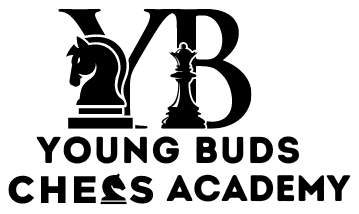Chess is more than a pastime—it’s a training ground for success in life. For kids, the skills learned on the 64-square board translate into qualities that set them up for success in academics, careers, and personal growth. From strategic thinking to emotional resilience, chess equips children with tools to thrive in a competitive world. Here’s how chess prepares kids for a successful future and why it’s a game to embrace.
Developing Strategic Vision
Chess teaches kids to think several moves ahead, a skill that’s critical for success. They learn to set goals, anticipate challenges, and adapt their plans. This strategic vision is essential in fields like business, engineering, or medicine, where long-term planning drives results.
For example, a child who plans a chess opening is practicing the same skills needed to prepare for a career or. They assess their resources, predict obstacles, and adjust their approach. This foresight helps kids excel in school projects, career planning, or even personal aspirations like saving for a big goal.
Honing Decision-Making Skills
Every chess move is a decision with consequences. Kids learn to evaluate options, weigh risks, and choose wisely, even under time pressure. This decision-making prowess prepares them for real-world choices, from choosing a college major to managing workplace challenges.
Chess also teaches kids to trust their judgment while staying open to learning. A wrong move teaches them to analyze and improve, fostering a balanced approach to risk-taking that’s key for success.
Building Resilience and Grit
Success often requires bouncing back from failure, and chess is a masterclass in resilience. Kids lose games, analyze their errors, and try again. This process builds grit—the ability to persevere through setbacks.
In life, this translates to tackling tough exams or, navigating job rejections, or overcoming personal challenges. Chess teaches kids that failure is a teacher, not a dead end, empowering them to keep pushing forward. Parents often notice that chess-playing kids are more determined and less afraid of challenges.
Enhancing Critical Thinking
Chess hones critical thinking, the ability to analyze, synthesize, and solve problems. Kids learn to assess complex positions, identify patterns, and devise solutions. This mental agility is a cornerstone of success in fields like science, law, or technology.
In school, critical thinking helps kids excel in subjects like math or literature, where analyzing data or texts is key. Beyond academics, it equips them to navigate life’s complexities, from financial decisions to ethical dilemmas.
Fostering Time Management
Chess games with clocks teach kids to allocate time wisely. They balance quick moves in the opening with deeper thought in critical moments. This time management skill is vital for success, where deadlines and priorities are constant.
Kids who play chess often become better at juggling schoolwork, hobbies, and rest. They learn to prioritize tasks and work efficiently, habits that serve them in college and careers.
Cultivating Emotional Intelligence
Chess is an emotional journey. Kids experience joy in victory and frustration in defeat, learning to manage their feelings. They also develop empathy by anticipating their opponent’s moves and understanding their perspective.
This emotional intelligence is crucial for success in relationships and leadership roles. Chess-playing kids are often better at resolving conflicts, collaborating, and inspiring others, qualities that shine in workplaces and communities.
Preparing for a Competitive World
Chess tournaments expose kids to healthy competition, preparing them for real-world challenges. They learn to strive for excellence while respecting others’ efforts. This balance of ambition and humility is essential for thriving in competitive fields.
Kids also gain confidence from competing, whether they win or lose. They see that success comes from preparation and effort, not just talent, motivating them to pursue their dreams with determination.
Encouraging Lifelong Learning
Chess fosters a love for learning. The game’s depth means there’s always more to master, from new openings to endgame techniques. Kids who play chess develop curiosity and a growth mindset, eager to improve and explore.
This passion for learning sets them up for lifelong success. They’re more likely to embrace new skills, adapt to change, and seek opportunities for growth, whether in their careers or personal lives.
Getting Kids Started with Chess
To prepare your child for success through chess, start with simple, engaging resources. Apps like ChessKid or beginner chess sets make learning fun. Join a school or community chess club, or explore online tournaments for experience.
Encourage progress over perfection. Celebrate their effort, like mastering a tactic or competing bravely, to build their confidence. As chess becomes part of their life, they’ll carry its lessons into every future endeavor.
Chess is a blueprint for success, equipping kids with strategic, intellectual, and emotional skills. It’s a game that prepares them to navigate challenges, seize opportunities, and thrive in a dynamic world. By introducing your child to chess, you’re giving them a head start toward a bright, successful future.
